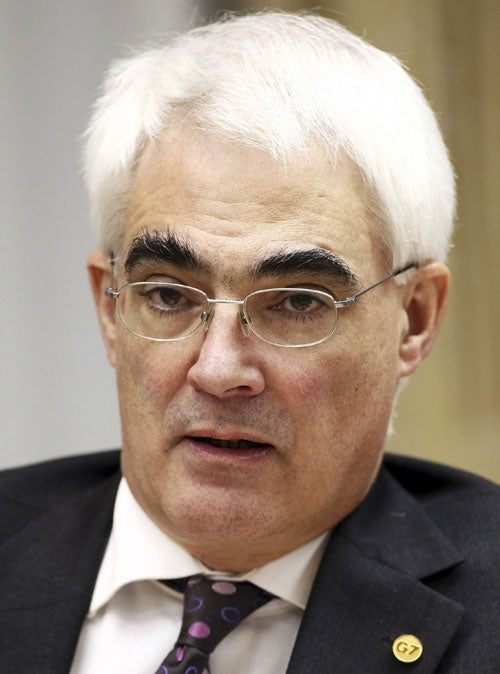Setback for Darling's 'green fund' initiative

Your support helps us to tell the story
From reproductive rights to climate change to Big Tech, The Independent is on the ground when the story is developing. Whether it's investigating the financials of Elon Musk's pro-Trump PAC or producing our latest documentary, 'The A Word', which shines a light on the American women fighting for reproductive rights, we know how important it is to parse out the facts from the messaging.
At such a critical moment in US history, we need reporters on the ground. Your donation allows us to keep sending journalists to speak to both sides of the story.
The Independent is trusted by Americans across the entire political spectrum. And unlike many other quality news outlets, we choose not to lock Americans out of our reporting and analysis with paywalls. We believe quality journalism should be available to everyone, paid for by those who can afford it.
Your support makes all the difference.The Chancellor, Alistair Darling, has failed, so far, in his attempt to persuade all of the G7 group of leading economies to create, in collaboration with the World Bank, a "green fund" for emerging and developing nations to draw upon as their economies advance.
The idea, also backed by the US government and Japan, would, for example, help pay for sustainable energy supplies rather than the use of fossil fuels for power generation. The com-munique of the G7 summit of finance ministers in Tokyo stated merely that they group had "discussed" the idea, and there was no immediate move on the part of France, Germany, Italy or Canada to sign up.
The communique noted that the fund would complement "existing bilateral and multilateral efforts in providing financial support for the deployment of clean technologies in developing countries" and the G7 acknowledged the need to "scale up" investment in developing countries to support them in joining international efforts to deal with climate change.
It is some way short of the commitment sought by Mr Darling, the Japanese fin-ance minister Fukushiro Nukaga and the US Treasury Secretary Henry Paulson, who said last week: "To be large enough to have a meaningful impact, the fund will require the support of other governments. We ask others to join our effort".
Nonetheless, Mr Darling said he was expecting a "substantial amount" of funding for the scheme, though he was not prepared to be more precise at this stage. He added that during the G7's working lunch and other meetings, some countries were "very interested in what we are doing", and expressed the hope that the World Bank, set up to deal with the problems of the 1940s, could find a new role in helping combat climate change.
Mr Darling's efforts follow Gordon Brown's speech to the World Economic Forum in Davos last month in which he said: "We need a global carbon market and we need a climate change agreement... and we need an institution that is global and can provide funds for developing countries that want to introduce alternative sources of energy. I cannot see why we do not move immediately for the World Bank to become a World Bank for the environment as well as development. We need an institution that is global, that can provide for countries that want to move to alternative sources of energy but who will simply build coal-fired power stations without an institution that is prepared to loan or give grants."
Join our commenting forum
Join thought-provoking conversations, follow other Independent readers and see their replies
Comments